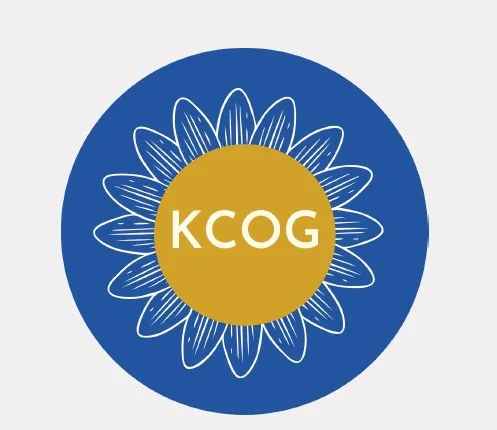Legal Initiative Fund
Defending Transparency
Purpose
The Kansas Coalition for Open Government (KCOG) has established a Legal Initiative Fund (hereafter “Fund”). The Fund would be primarily intended to help news organizations and journalists respond to legal issues that adversely impact their ability to report on matters of public interest.
Through the Fund, KCOG retains qualified attorneys on a case-by-case basis to resolve transparency issues encountered by the state’s news organizations and journalists, such as by (a) responding to a public agency’s denial of a KORA request; (b) protecting against potential defamation claims arising from a forthcoming article or broadcast critical of a public official; or (c) challenging a judge’s order to seal records.
Assistance will be offered through the Initiative when protection of journalists’ legal rights is likely to have a broad, beneficial impact on issues such as the public’s appreciation of government transparency; judge’s understanding of how to construe and apply open-government laws; and state legislators’ views of whether or how open-government laws may need to be strengthened.
The Legal Initiative will be uniquely positioned to build on recent developments in the law governing access to records of police misconduct, discussed below, and go a long way toward improving government officials’ compliance with open-government laws statewide.

Kansas is the “Dark State”
The Initiative is sorely needed. Kansas journalists work in “a dark state when it comes to public information laws.” 1 In the Kansas City Star’s award-winning 2017 series, Why So Secret, Kansas? 2, a former legal director of the American Civil Liberties Union of Kansas told the newspaper “[t]here’s something about Kansas; I don’t know what it is exactly. But Kansas is overly worried about information becoming public. If it’s not the least transparent state in the Union, it’s close to it.”
In fact, the Star reported after its “months-long” investigation that “Kansas runs one of the most secretive state governments in the nation, and its secrecy permeates nearly every aspect of service.” It identified numerous instances where government agencies denied access to records or otherwise inhibited the media’s ability to obtain the information necessary to challenge or verify the legality of governmental conduct. The newspaper’s own attempts to shed light on government conduct were thwarted, such as when the Kansas Department of Children and Families refused to fulfill the paper’s KORA requests, three months after they had been delivered, claiming it “didn’t have enough staffing resources ‘due to its current workload of KORA requests.’”
Such a response is belated and impermissible under KORA. But for whatever reason, the Star declined to file a civil action challenging the agency. As a result, the agency’s bald assertion stood then and does now as a wrongful application of KORA. The agency’s questionable exercise of discretion is the sort used widely by public agencies to restrict access to information and can be effectively challenged only by an attorney with experience in Kansas open-government laws. 3
1 Ranker, Luke. “After judge tosses suit, BuzzFeed open to suing Kobach again; transparency advocate calls Kansas ‘dark state.’” The Topeka Capital-Journal, March 13, 2018, retrieved from cjonline.com, November 17, 2022. See also KSHB TV 41 Kansas City. “The Dark State: A look at restrictive open records laws in Kansas.” 2014. Retrieved from youtube.com, November 17, 2022.
2 Bauer, Laura, et al. “‘One of the most secretive, darkest states’: What is Kansas trying to hide?” The Kansas City Star, November 13, 2017, retrieved from www.mcclatchydc.com (subscription required), November 17, 2022. Among other accolades, the
article series was a 2018 Pulitzer Prize finalist.
3 Davis, Mark. “Star partners with Eagle in lawsuit for access to Wichita police body camera footage.” The Kansas City Star, December 1, 2017, retrieved from kansascity.com, November 17, 2022.
4 See, e.g., Hrincher, Tim. “Topeka police refuse to release body camera footage of June fatal officer-involved shooting,” The Topeka Capital-Journal, September 21, 2022, retrieved from yahoo.com/news, November 17, 2022.
5 See, e.g., Harris Enterprises, Inc. v. Moore, 241 Kan. 59 (1987); Seck v. Overland Park, 29 Kan. App.2d 256 (2000); K.S.A. 45-221(a)(10)(A) through (F).
6 See, e.g., AP and Viviani, Nick. “Judge won't release records in 1988 Kansas disappearance,” WIBW-TV, January 30, 2018, retrieved from wibw.com, November 17, 2022.
The Legal Initiative’s actions are guided by two main priorities.
First, the Legal Initiative is intended to engage in impact litigation that involves important legal issues affecting journalists and news organizations. Litigation may be impactful because it involves newsworthy subject matter and because it presents an opportunity to develop favorable case law.
Second, the Initiative may provide legal services for news organizations that cannot routinely afford representation in the areas of libel, privacy, and other newsgathering torts, and reporter’s privilege, among others. Prepublication review and newsgathering strategy are a priority. When deciding whether the Legal Initiative should take on a particular issue, either by litigation or otherwise, KCOG would do so with reference to the following guidelines, which are adapted from criteria used by the Washington Coalition for Open Government (WashCOG) when determining whether offering legal services in a particular instance furthers its mission: 13
a. The issue under consideration should have a strong legal basis indicating a high likelihood of ultimate success on the merits or a reasonable likelihood of yielding a judicial ruling that takes fully into account applicable legal precedents and legal principles.
b. The action should be likely to advance the cause generally of open government or freedom of expression.
c. The action must be in the public interest rather than further narrow private interests.
d. The case raises legal questions that, if addressed, could help resolve existing ambiguities in or advance development of, state or federal law in the areas of freedom of information or freedom of expression.
e. The action could end a pattern of undue denial of access to government information or interference with freedom of speech or press.
f. The case would hold government institutions accountable, and encourage them to be transparent, and prompt them to act with integrity and with due regard for the rights of the citizenry.
g. The case would support news coverage about a significant matter of public concern and yield information Kansans need to engage meaningfully in democratic self-governance.
h. Disseminating information about the case would educate Kansans about their right of access to public meetings and records and their right to freedom of speech and press under the First Amendment.
13 See https://www.washcog.org/legal, retrieved on October 10, 2022.
Documenting police misconduct: An expensive proposition
Perhaps the most striking example of the harm caused by wrongfully withholding records is the government’s continued insistence on keeping the public in the dark about law enforcement officers who use unreasonably harmful or deadly force, particularly in instances when the officers involved are not prosecuted or have been exonerated. 4 One of the crucial tools available to law enforcement agencies to maintain secrecy is to misapply language in KORA designed to permit withholding of police reports in ongoing cases. 5
For decades, this was an effective tactic. 6 But in 2021, Kansas courts began paving the way for increased law enforcement transparency thanks to a pair of unrelated KORA cases brought by the Wichita Eagle 7 and KSHB-TV in Kansas City. 8
In both cases, the law enforcement agencies denied the news outlets’ requests for records related to instances of alleged police misconduct on grounds that disclosure was not in the public interest. But both cases ended with the law enforcement agency defendants turning over the requested records. In ordering disclosure, the judge in the Eagle’s case found that “when there is misconduct or even alleged misconduct, it is in the public interest to know exactly what happened and what remedial steps have been taken to address such misconduct, if any.” 9 And the Washington Post used the records KSHB-TV obtained to produce a short documentary film highlighting the deficient internal investigation involving an officer shooting and killing 17-year-old John Albers. 10
The outcomes in those cases show once again that “records requests are key to finding out important information on what is happening in a community,” says Emily Bradbury, Executive Director of the Kansas Press Association.
To be sure, the Eagle and KSHB-TV have carried on the tradition of media outlets driving transparency policy in Kansas. 11 Their recent efforts have established the blueprint for other news organizations to seek access to records documenting police misconduct.
But in the face of declining revenues, 12 few Kansas news organizations have the means necessary to follow in the footsteps of these larger outlets and challenge an agency’s refusal to disclose the records that are so crucial to shedding light on government conduct.
“When a records request is wrongly denied, our members have few options other than to sue for the records,” Bradbury laments. “Most often, this is not possible due to the high cost of litigation.”
As a result, agency decisions adverse to the public interest often go unchallenged, and KORA cases like those brought by the Eagle and KSHB-TV 41 are outliers. But with your support, the Legal Initiative can benefit the public in large part by helping smaller news organizations to compel compliance in court rather than merely wish for it.
3 Davis, Mark. “Star partners with Eagle in lawsuit for access to Wichita police body camera footage.” The Kansas City Star, December 1, 2017, retrieved from https://www.kansascity.com/news/politics-government/article187533378.html, November 17, 2022.
4 See, e.g., Hrincher, Tim. “Topeka police refuse to release body camera footage of June fatal officer-involved shooting,” The Topeka Capital-Journal, September 21, 2022, retrieved from https://www.yahoo.com/news/kansas- deputy-tased-12-old-100025940.html, November 17, 2022.
5 See, e.g., Harris Enterprises, Inc. v. Moore, 241 Kan. 59 (1987); Seck v. Overland Park, 29 Kan. App.2d 256 (2000); K.S.A. 45-221(a)(10)(A) through (F).
6 See, e.g., AP and Viviani, Nick. “Judge won't release records in 1988 Kansas disappearance,” WIBW-TV, January 30, 2018, retrieved from https://www.wibw.com/content/news/Judge-wont-release-records-in-1988-Kansas-disappearance-471779154.html, November 17, 2022.
The bottom line
It has been said that “democracy dies in darkness.” 14 By providing the legal services described herein and publicizing the results, the Open Government Legal Initiative puts Kansans in a better position than ever before to illuminate, challenge, and advance open government issues in the state, directly serving and educating the public.
14 Paul Farhi, The Washington Post’s new slogan turns out to be an old saying, The Washington Post (February 24, 2017), https://www.washingtonpost.com
